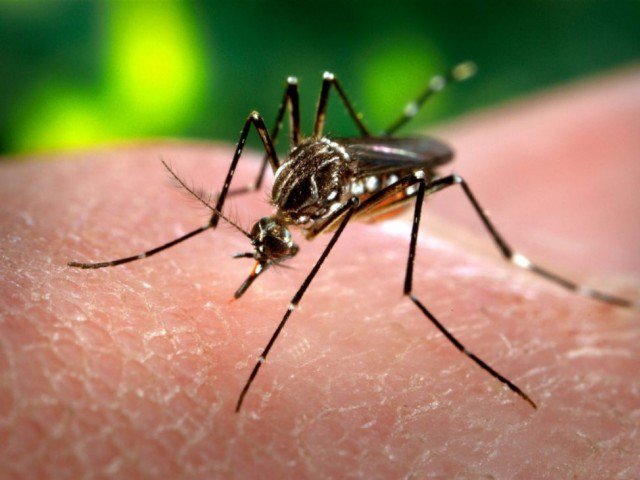
After new cases, the total figure of dengue patients has escalated to 1228. Among these, 34 of 47 patients hailed from areas of Potohar Town, which is considered to be the most sensitive area.
Meanwhile, some 843 patients have been discharged from three allied hospitals including Benazir Bhutto Hospital (BBH), Holy Family Hospital (HFH) and District Headquarters (DHQ) hospital.
Despite rigorous efforts by the government, the influx of dengue patients continued while the dengue wards in allied hospitals have been equipped with additional beds. However, the shortage of doctors and staff is creating difficulties for patients.
The Secretary Health Punjab, Momin Ali Agha, visited allied hospitals in Rawalpindi and assured release of budget.
He further directed health department and district administration to expedite anti-dengue measures.
Secretary was convinced that health department of Rawalpindi did not conduct timely surveillance owing to which the epidemic broke out. He later met with Rawalpindi Medical University Vice-Chancellor Dr Umar.
Meanwhile, Health officials have advised the citizens to remain vigilant to condense the spread of dengue virus, minimising its effects in wake of prevailing high risk season for mosquito-borne diseases.According to them, dengue fever is a severe, flu-like illness that affects infants, young children and adults and in case of dengue like symptoms patient should immediately consult to medical practitioner.
Medical expert Dr Sharif Astori from Federal Government Polyclinic (FGPC) hospital said that dengue viruses are transmitted to humans through the bites of infective female Aedes mosquitoes.
He added mosquitoes generally acquire the virus while feeding on the blood of an infected person.
He said that the virus circulates in the blood of infected humans for two to seven days, at approximately the same time as they suffer from fever.
He added the clinical features of dengue fever vary according to the age of the patient.
He said that after virus incubation for eight to ten days, an infected mosquito is capable, during probing and blood feeding, of transmitting the virus to susceptible individuals for the rest of its life.
He said that dengue haemorrhagic fever is a potentially deadly complication that was characterised by high fever, haemorrhagic phenomena.
Dr Wasim Khawaja from Pakistan Institute of Medical Sciences (PIMS) said that dengue is a mosquito-borne infection, which in recent years has become a major public health concern.
He added the spread of dengue is attributed to expanding geographic distribution of the four dengue viruses and of their mosquito vectors, the most important of which is the predominantly urban species Aedesa egypti.
He said that the rapid growth of urban population is bringing ever greater numbers of people into contact with this vector, especially in areas that are favorable for mosquito breeding like in places where household water storage is common and where solid waste disposal services are inadequate.
He said that infants and young children may have a non-specific febrile illness with rash as older children and adults may have either a mild febrile syndrome or the classical incapacitating disease with abrupt onset and high fever, severe headache, pain behind the eyes, muscle and joint pains and rash.
He said that mosquitoes breed primarily in containers like earthenware jars, metal drums and concrete cisterns used for domestic water storage, as well as discarded plastic food containers, used automobile tyres and other items that collect rain water.
He said that World Health Organisation (WHO) has identified as some factors including spatial variations of rainfall, temperature, relative humidity, degree of urbanisation and quality of vector control services in urban areas behind the dengue outbreak in tropical regions.When contacted an official from the Ministry of National Health Services, Regulations and Coordination said that steps are being taken to minimise the appearance and spread of dengue fever in Rawalpindi and Islamabad.
He said that preparation plan has been made for hospitals focusing on preventive care, diagnostic facilities, and availability of beds along with treatment protocol.
With additional input by APP
Published in The Express Tribune, September 8th, 2019.

1722586547-0/Untitled-design-(73)1722586547-0-165x106.webp)


1732326457-0/prime-(1)1732326457-0-165x106.webp)












COMMENTS
Comments are moderated and generally will be posted if they are on-topic and not abusive.
For more information, please see our Comments FAQ